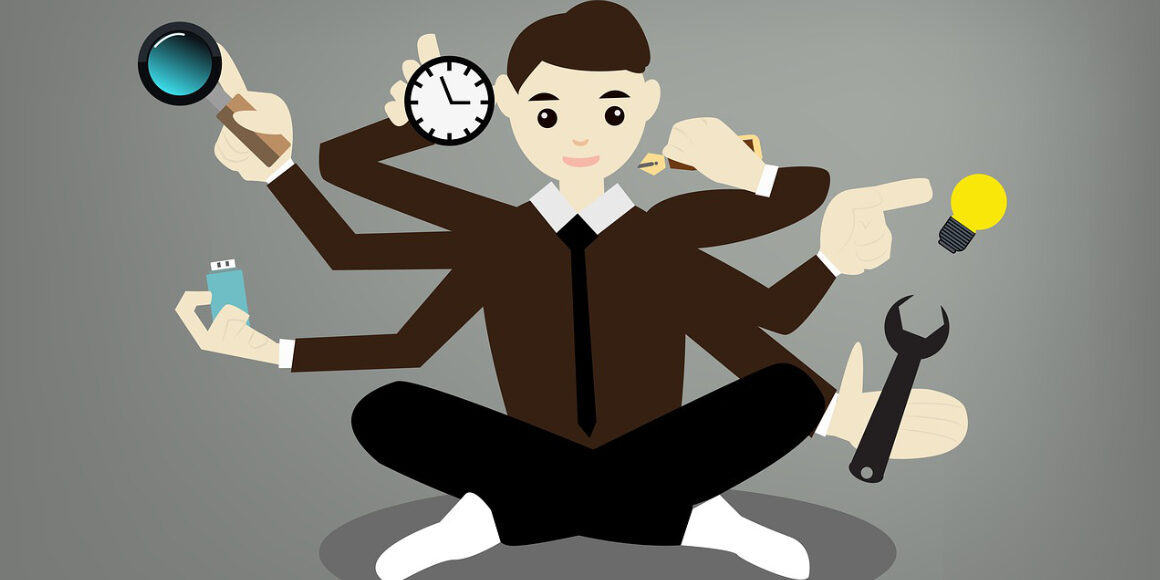My phone rang. It was Judi, my business coach. She had emailed earlier to request a call to discuss a workshop later in the month. I responded that I had a 4.00 p.m. call with a client and would email her when it was done. I did so at 4.25 p.m. but hadn’t heard back from her and so did not expect her call.
“Hi Judi” I said in my chirpiest voice as I walked to my desk. My MacBook powered on automatically, activated by my Apple watch. I started to check emails, and worse, respond to them.
“How was your Christmas?” I asked.
“Well, I spent it in hospital”
“Oh no” I exclaimed “What happened?”
One would think that someone telling you they spent Christmas in hospital would be enough to stop everything and pay full attention. I did not. I was operating under the myth of multitasking, thinking that I was quite competent to effectively converse with Judi and check emails at the same time. Peter Bregman, author of “80 Minutes” said: “We don’t actually multitask. We switch tasks rapidly shifting from one thing to another.” That’s exactly what I was doing – switch tasking between reading emails, writing replies, hearing Judi and trying to offer responses that made sense. Frankly, I missed most of what she said, catching only snippets of her story.
I felt incomplete after the call, as I realised I was distracted and had not listened. I am currently reading “The Lost Art of Good Conversation” by Sakyong Mipham. The byline of the book is: “A Mindful Way to Connect with Others and to Enrich Everyday Life.” The book presents simple, practical advice on how to connect with each other, recognising that approaching our conversations with compassion and kindness makes for joyful lives and a happier world.
Reflecting on my conversation with Judi, there are 3 things I could have done to make it uplifting and joyful for both of us:
- Make a conscious decision:
When the phone rang, I had a choice whether to take the call or not. There is no sin in choosing to miss a call; we don’t have to answer every single call as it comes in. The beauty of mobiles is that we know who is calling so we can always call back. - Minimise distractions:
There are choices I could have made to reduce distractions. I could have chosen not to go to the computer as going to the computer was a trigger to check emails. I could have sat in a chair and taken the call. - Focus on one thing:
At the moment of the call, the ONLY thing of importance was that conversation, and the only person of importance was Judi. Everything else could wait.
At the end of each chapter in his book, the Sakyong invites the reader to reflect. As a leader, you engage in many conversations throughout the day. I invite you to reflect on one of these conversations today:
- How did you feel about the conversation?
- Did you make a conscious decision to have the conversation in terms of time, place and topic?
- Did you avoid triggers and minimise distractions?
- Were you focused ONLY on the person with whom you were having the conversation?
- What could you have done differently?






Marguerite that’s my life..all day….every day. I was recently multitasking (I feel inadequate when I’m not) when my best girlfriend called. I was on the computer at the time and watching a court case on television that had also caught my attention and so was distracted…at least until I heard her say she was diagnosed with a form of lupus! Instantly my multitasking ceased…well briefly…because I didn’t hear anything she said after as I began looking it up on Google.
Thankfully she knows me well because she wasn’t upset when I interrupted her and started asking questions about what I read as if I were the doctor diagnosing her. I however regret not hearing her first words, because they were meaningful to her when she was first expressing her illness to me, and neither of us can ever get back those emotions.
My take away is to stop multitasking when I take a call. I let some go to voicemail…those people who I cannot get off the phone…those that can easily go THREE hours and that was only because the battery in her phone died!! I will listen to take the temperature of the topic, to know if I can continue multitasking or give it my full attention.
Dear Eve.
Thank you so much for sharing your own experience. I am focused only on YOU as I type this. My new resolve – one thing at a time.
Gratefully and joyfully
Marguerite
I love learning with you! Thank you for your acknowledgment Marguerite Orane ?
Thanks for understanding Judi! here’s to many more moments of learning!
Gratefully and joyfully
Marguerite